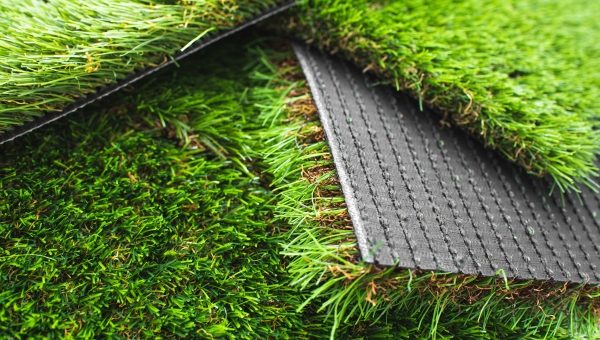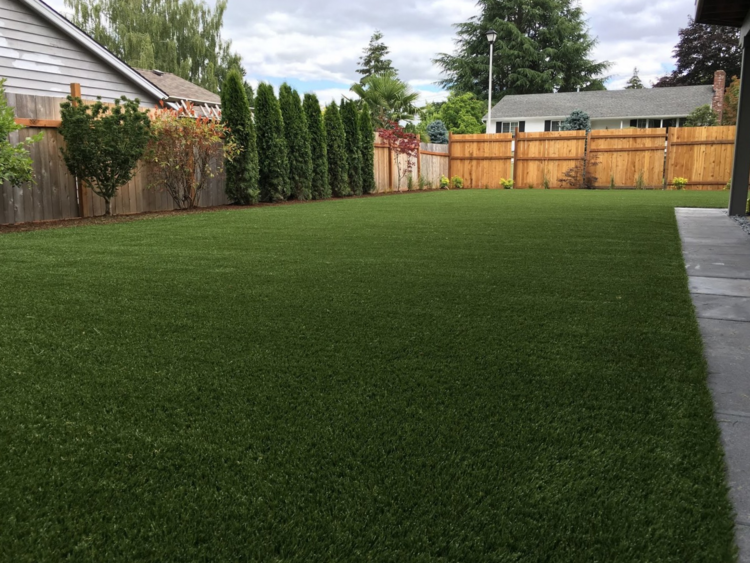Delve Into the Environmental Advantages of Opting for Synthetic Grass Solutions
The fostering of artificial turf solutions presents an engaging possibility to deal with pressing environmental obstacles. By dramatically decreasing water usage and lessening the application of damaging chemicals, these options not just advertise lasting landscaping but additionally protect regional environments.
Water Preservation Advantages
Among the most substantial advantages of man-made turf is its capability to save water. Standard turf lawns require considerable irrigation, specifically in locations prone to dry spell or water constraints. In comparison, synthetic turf does not require watering, significantly lowering the total need for water resources. This feature is particularly useful in arid regions where water scarcity is a pressing concern.
By eliminating the requirement for regular watering, synthetic grass adds to lasting landscape practices and helps reduce the environmental effect of extreme water usage. The conservation of water expands to the reduction of overflow, which can lead to dirt disintegration and waterway air pollution.
Additionally, the setup of synthetic grass permits house owners and towns to allot water resources much more effectively, concentrating on important usages such as drinking water and agriculture. The shift in the direction of synthetic grass not only promotes liable water use but also lines up with more comprehensive environmental objectives aimed at maintaining natural sources.
As neighborhoods significantly focus on sustainability, the water conservation benefits of synthetic lawn present an engaging situation for its adoption in business and domestic landscaping tasks.
Lowered Chemical Use
The shift to artificial turf considerably lowers the reliance on chemical therapies generally used in all-natural lawn upkeep. Typical lawn management generally entails the application of herbicides, chemicals, and plant foods to advertise growth and control insects. These chemicals can present risks to human wellness, regional wildlife, and the environment, contributing to dirt and water contamination.
In comparison, man-made grass gets rid of the need for these dangerous substances. By reducing the launch of artificial compounds into the ecosystem, man-made grass promotes healthier dirt and water systems.
Additionally, the absence of chemical runoff connected with synthetic grass installations aids safeguard neighborhood waterways from air pollution, sustaining water life and keeping biodiversity. Artificial turf companies phoenix. As neighborhoods significantly prioritize lasting methods, going with synthetic grass provides a practical option that lines up with environmental preservation goals. Through this change, home proprietors can appreciate lush environment-friendly spaces without compromising environmental wellness, leading the way for an extra sustainable future
Lower Carbon Impact

Furthermore, the installation of synthetic grass can lead to considerable water conservation. All-natural lawns require considerable quantities of water for irrigation, which not just includes to the carbon footprint connected with water extraction and treatment however also strains local water resources. On the other hand, fabricated lawn requires very little maintenance, requiring no watering, therefore dramatically minimizing water use and its associated energy costs.
In addition, the longevity of synthetic grass adds to its lower carbon effect. With find more information a lifespan of approximately 15 years or even more, the need for frequent substitutes is reduced, leading to less waste and lower energy usage in production and disposing of traditional turf options. On the whole, artificial grass offers a lasting alternative for eco mindful landscaping.
Environment Conservation
Environment conservation is a critical consideration in the discussion over landscaping choices, particularly when comparing fabricated turf to all-natural yard. All-natural grass lawns typically require comprehensive maintenance, including using pesticides, fertilizers, and herbicides, which can detrimentally you could try this out impact local environments. These chemicals can leach into the soil and rivers, harming native plants and fauna and interrupting neighborhood habitats.
On the other hand, synthetic grass provides a possibility to reduce the ecological footprint of landscape design. By choosing synthetic grass, house owners can lessen the interruption of all-natural environments related to typical yard treatment practices. Synthetic grass eliminates the need for hazardous chemicals, thus securing neighboring wild animals and maintaining the honesty of bordering ecosystems. The installation of fabricated lawn can lead to the conversion of former yard areas into more biodiverse landscapes, such as pollinator gardens or native plant areas, which can support regional wild animals.
Eventually, the transition to fabricated grass not just preserves water and minimizes upkeep efforts however additionally fosters an extra unified connection between human activities and the natural surroundings, promoting habitat preservation in the process.
Long-Term Sustainability
Lasting sustainability is a vital element in evaluating the advantages of synthetic lawn over conventional lawn lawns. Among the most significant benefits of synthetic grass is its toughness; it can last as much as 15-20 years with minimal upkeep, whereas natural lawn calls for regular reseeding and replacement. This long life minimizes the need for continuous sources, such as water, fertilizers, and pesticides, which are important for maintaining a healthy turf yard.
Additionally, synthetic grass adds to a reduction in carbon emissions associated with lawn care equipment. Typical yards typically call for gas-powered lawn mowers, trimmers, and blowers, all of which add to air contamination. Artificial turf companies phoenix. In contrast, synthetic grass eliminates the need for such equipment, promoting a cleaner atmosphere
Moreover, the manufacturing of synthetic lawn significantly makes use of recycled products, boosting its sustainability profile. As manufacturers adopt green methods, the ecological footprint of synthetic grass remains to lessen.

Conclusion
The adoption of synthetic grass services presents significant ecological advantages, including substantial water preservation, decreased dependence on hazardous chemicals, and a reduced carbon footprint. In addition, man-made turf aids in protecting all-natural environments by decreasing land disruption and promoting long-term sustainability via the usage of durable products. Collectively, these aspects emphasize the capacity of synthetic grass to add positively to ecological health and supply a sensible option to conventional landscaping techniques in a significantly resource-conscious world.
In comparison, artificial grass does not need watering, considerably decreasing the total need for water resources. By lessening the release of synthetic substances into the ecosystem, synthetic lawn promotes much healthier dirt and water systems.
In addition, the installment of fabricated lawn can result in substantial water conservation. In comparison, fabricated grass requires very little maintenance, needing no watering, thereby significantly lowering water usage and its linked power prices.
